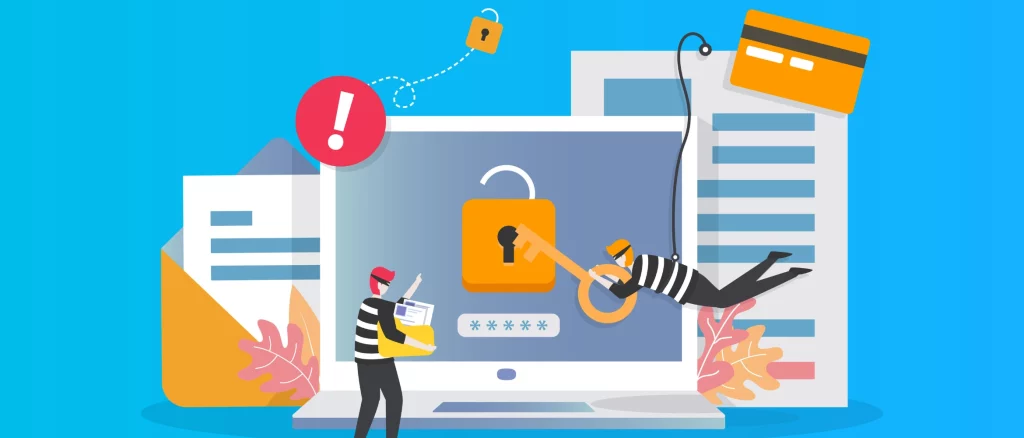Email encryption secures financial data during transmission, defending against cyber threats. Only authorized users can access encrypted messages, ensuring data integrity and confidentiality. Robust encryption algorithms and keys create secure communication channels, preventing unauthorized access in transactions. This protection reduces the risk of data breaches, fostering trust in digital communication. Implementing email encryption is vital for financial well-being in today’s digital landscape, offering peace of mind and privacy assurance. Learn more about the benefits of email encryption in safeguarding financial information.
Key Takeaways
- Protects financial information from unauthorized access and fraud.
- Ensures compliance with financial regulations and secure transactions.
- Maintains confidentiality of sensitive financial reports and statements.
- Enhances trust and credibility in digital communication.
- Provides peace of mind by safeguarding confidential data and mitigating data breach risks.
Understanding Email Encryption
Understanding Electronic mail Encryption is important in protecting sensitive information transmitted electronically. Email encryption guarantees that only authorized parties can access the content of the message, safeguarding it from potential threats and unauthorized access. By utilizing encryption algorithms and keys, email encryption provides a secure channel for communication, maintaining the confidentiality and integrity of the data being shared. It is a fundamental aspect of secure communication in the digital age.
Importance of Secure Communication
Within the domain of digital data sharing, protected communication serves as the foundation of safeguarding confidential information from unauthorized access and potential threats. Secure communication protocols guarantee that sensitive data transmitted via email remains encrypted and inaccessible to malicious actors. By establishing secure channels for information exchange, individuals and businesses can protect their financial information, personal data, and other critical information from cyber threats and breaches.
Mitigating Financial Risks
To effectively safeguard financial assets and data integrity, implementing strong email encryption measures is vital for mitigating potential risks.
- Prevent unauthorized access to sensitive financial information.
- Decrease the likelihood of financial fraud.
- Guarantee compliance with financial regulations.
- Shield against email interception during financial transactions.
- Safeguard confidential financial reports and statements.
Enhancing Data Privacy
Enhancing data privacy through strong email encryption protocols is vital for safeguarding sensitive information and maintaining confidentiality in digital communications. Implementing robust encryption mechanisms guarantees that data remains secure from unauthorized access or interception. By encrypting emails, organizations can protect valuable data assets and uphold the trust of their clients and partners, contributing to a secure digital environment where privacy is prioritized.

Ensuring Peace of Mind
By ensuring strong email encoding measures, individuals can experience a heightened sense of security and peace of mind in their digital communications.
- Protection against unauthorized access
- Safeguarding sensitive information
- Mitigating the risk of data breaches
- Ensuring confidentiality of messages
- Enhancing trust and credibility in communication
Frequently Asked Questions
How Does Email Encryption Impact the Speed of Sending and Receiving Emails?
Email encryption can slightly impact email speed because of the encryption and decryption processes. While this may cause a minor delay, the added security measures guarantee that sensitive information remains protected, outweighing the minimal slowdown in transmission.
Can Email Encryption Protect Against All Types of Cyber Threats?
Email encryption serves as a crucial defense against a variety of cyber threats. By encoding messages, it thwarts unauthorized access, lessens risks of data breaches, and guarantees the confidentiality and integrity of sensitive information exchanged over email channels.
Are There Any Drawbacks to Using Email Encryption for Financial Transactions?
While email encryption improves security in financial transactions, drawbacks may include user errors in key management, potential compatibility issues with certain systems, and the need for ongoing maintenance. Proper training and monitoring can alleviate these challenges.
How Can Individuals Ensure That Their Email Encryption Software Is up to Date and Effective?
Individuals can confirm email encryption software is up to date by regularly checking for updates from the provider. Effectiveness can be sustained by verifying encryption protocols used, employing strong encryption keys, and conducting periodic security audits.
What Are Some Common Misconceptions About Email Encryption and Its Benefits for Financial Security?
Common misconceptions about email encryption for financial security include beliefs that it’s only necessary for large corporations, that it’s too complex for everyday use, and that it slows down communication. In reality, email encryption is vital for all individuals and an be user-friendly.
Also read: Balancing Real Estate Investment Strategies





